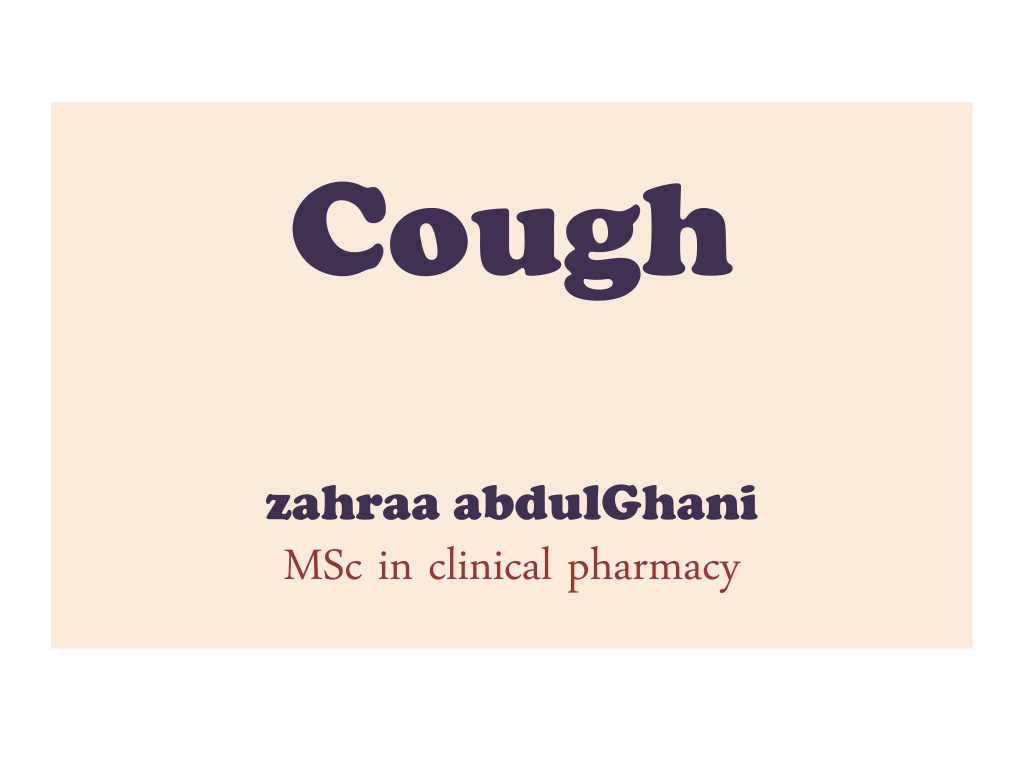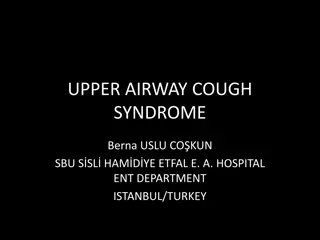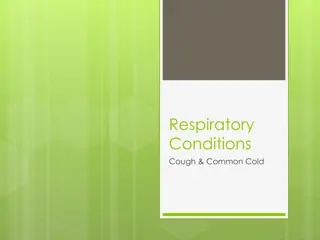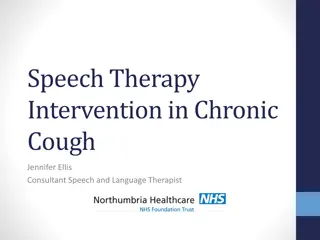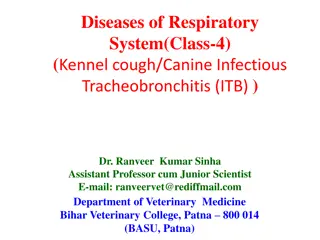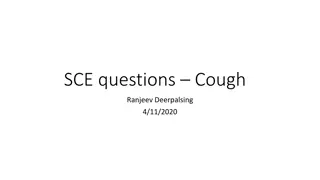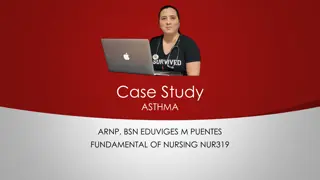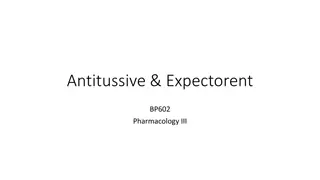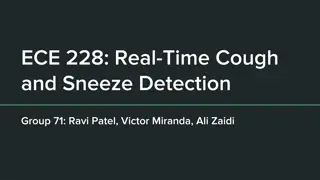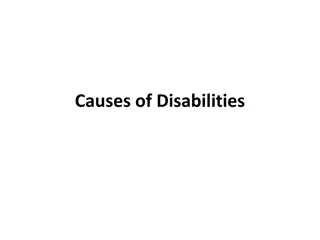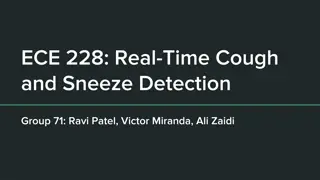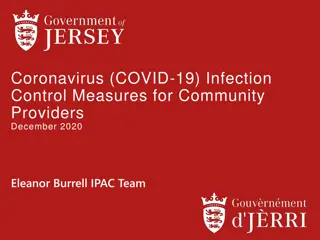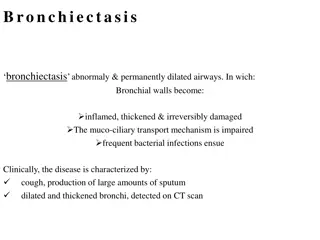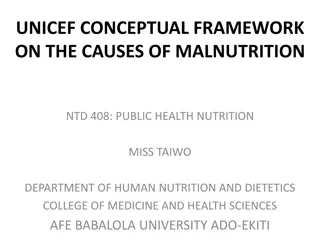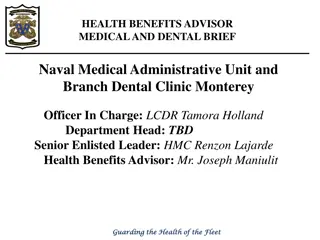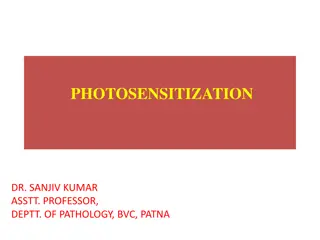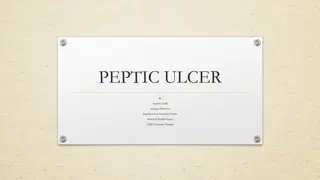Understanding Cough: Types, Causes, and When to Seek Medical Help
Coughing is a protective reflex action that clears the airways. It can be unproductive (dry) or productive (chesty), with various causes such as infections, allergies, and smoking. Different types of sputum indicate different conditions. Knowing when to seek medical help based on cough duration, associated symptoms, and referral conditions is crucial for appropriate treatment. Additionally, understanding the significance of questions and answers related to cough, including age, smoking habits, and medication side effects, can guide healthcare decisions.
Download Presentation

Please find below an Image/Link to download the presentation.
The content on the website is provided AS IS for your information and personal use only. It may not be sold, licensed, or shared on other websites without obtaining consent from the author. Download presentation by click this link. If you encounter any issues during the download, it is possible that the publisher has removed the file from their server.
E N D
Presentation Transcript
Cough zahraa abdulGhani MSc in clinical pharmacy
Coughing is a protective reflex action caused when the airway is being irritated or obstructed. Its purpose is to clear the airway so that breathing normally. can continue
Types of cough Unproductive (dry):no sputum is produced caused by viral infection and is self-limiting. Productive (chesty or loose):sputum is normally produced but over secretion to coughing may be caused by irritation of the airways due to infection, allergy, etc., or when the cilia are not working properly (e.g. in smokers). Non-coloured (clear or whitish) sputum is uninfected and known as mucoid. Coloured sputum may indicate a bacterial chest infection such as bronchitis or pneumonia and require referral. In these situations the sputum is described as green, yellow or rust-coloured thick mucus and the patient is more unwell usually with a raised temperature, shivers and sweats. Sometimes blood may be present in the sputum (haemoptysis), with a colour ranging from pink to deep red. Haemoptysis is an indication for referral.
Significance of questions and answers Age: the patient is child or adult will influence the choice of treatment. Duration: most coughs are self-limiting and will be better within a few days with or without treatment. In general, a cough of longer than 2 weeks duration should be referred. Associated symptoms: cold, sore throat and catarrh may be associated with a cough. Postnasal drip: is a common cause of coughing and may be due to sinusitis. Smoking habit: smoking will exacerbate a cough and can cause coughing since it is irritating to the lungs. On stopping, the cough may initially become worse as the cleaning action of the cilia is re-established during the first few days. Angiotensin-converting enzyme (ACE) inhibitors:Chronic coughing may occur in patients, particularly women, enalapril, captopril, lisinopril and ramipril. Patients may develop the cough within days of starting treatment or after a period of a few weeks or even months.
Referral conditions -Cough lasting 2 weeks or more and not improving, sputum (yellow, green, rusty or blood-stained),chest pain, shortness of breath, wheezing, recurrent nocturnal cough, suspected adverse drug reaction and failed medication requiring referral to a physician. -Tuberculosis (TB),Chronic bronchitis -Asthma: a recurrent night-time cough can indicate asthma, especially in children -Croup : it usually occurs in infants. The cough has a harsh barking quality. It develops 1 day or so after the onset of cold-like symptoms, often associated with difficulty in breathing and noise in throat on breathing in). -Whooping cough (pertussis):it starts with catarrhal symptoms. The bouts of coughing prevent normal breathing and the whoop represents the desperate attempt to get a breath. -Cardiovascular: coughing can be a symptom of heart failure. If there is a history of heart disease, especially with a persisting cough, then referral is advisable. Gastro-oesophageal:can cause coughing. Sometimes such reflux is asymptomatic apart from coughing.
Non Non- -pharmacological pharmacological Treatment Treatment
Dextromethorphan Dextromethorphan
